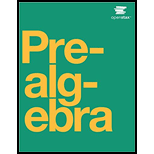The image shows a pair of parallel lines cut by a transversal. - The parallel lines are marked with arrows to indicate that they are parallel. - The transversal intersects the parallel lines, forming eight angles. In the diagram: - One of the angles is labeled as \(5x + 7\). - The corresponding angle on the opposite side of the transversal is labeled as \(9x - 63\). This setup is commonly used to demonstrate relationships between angles when parallel lines are intersected by a transversal, such as alternate interior angles, corresponding angles, and other angle pair relationships. The image contains a diagram of two intersecting lines, labeled with angles. The description is as follows: - **Line Representation**: Two lines intersect, forming vertical angles. - **Angles**: - The angle on the left is represented by \( 5x + 21^\circ \). - The angle on the right is represented by \( 12x - 14^\circ \). - Below the intersection, a vertically opposite angle is represented by \( 20x + 34^\circ \). These equations typically indicate a problem where you might solve for \( x \) to determine specific angle measures, illustrating concepts of algebraic expressions and geometry, such as vertical angles being congruent.
The image shows a pair of parallel lines cut by a transversal. - The parallel lines are marked with arrows to indicate that they are parallel. - The transversal intersects the parallel lines, forming eight angles. In the diagram: - One of the angles is labeled as \(5x + 7\). - The corresponding angle on the opposite side of the transversal is labeled as \(9x - 63\). This setup is commonly used to demonstrate relationships between angles when parallel lines are intersected by a transversal, such as alternate interior angles, corresponding angles, and other angle pair relationships. The image contains a diagram of two intersecting lines, labeled with angles. The description is as follows: - **Line Representation**: Two lines intersect, forming vertical angles. - **Angles**: - The angle on the left is represented by \( 5x + 21^\circ \). - The angle on the right is represented by \( 12x - 14^\circ \). - Below the intersection, a vertically opposite angle is represented by \( 20x + 34^\circ \). These equations typically indicate a problem where you might solve for \( x \) to determine specific angle measures, illustrating concepts of algebraic expressions and geometry, such as vertical angles being congruent.
Holt Mcdougal Larson Pre-algebra: Student Edition 2012
1st Edition
ISBN:9780547587776
Author:HOLT MCDOUGAL
Publisher:HOLT MCDOUGAL
Chapter9: Real Numbers And Right Triangles
Section9.5: The Distance And Midpoint Formulas
Problem 2C
Related questions
Question
These are the instructions...
Use your knowledge of angle pair relationships to write an equation and solve for a in the diagrams below: Then calculate the measures of the labeled angles. Justify your solutions by naming the theorem.

Transcribed Image Text:The image shows a pair of parallel lines cut by a transversal.
- The parallel lines are marked with arrows to indicate that they are parallel.
- The transversal intersects the parallel lines, forming eight angles.
In the diagram:
- One of the angles is labeled as \(5x + 7\).
- The corresponding angle on the opposite side of the transversal is labeled as \(9x - 63\).
This setup is commonly used to demonstrate relationships between angles when parallel lines are intersected by a transversal, such as alternate interior angles, corresponding angles, and other angle pair relationships.

Transcribed Image Text:The image contains a diagram of two intersecting lines, labeled with angles. The description is as follows:
- **Line Representation**: Two lines intersect, forming vertical angles.
- **Angles**:
- The angle on the left is represented by \( 5x + 21^\circ \).
- The angle on the right is represented by \( 12x - 14^\circ \).
- Below the intersection, a vertically opposite angle is represented by \( 20x + 34^\circ \).
These equations typically indicate a problem where you might solve for \( x \) to determine specific angle measures, illustrating concepts of algebraic expressions and geometry, such as vertical angles being congruent.
Expert Solution
Step 1
.jpg)
Trending now
This is a popular solution!
Step by step
Solved in 2 steps with 2 images

Recommended textbooks for you

Holt Mcdougal Larson Pre-algebra: Student Edition…
Algebra
ISBN:
9780547587776
Author:
HOLT MCDOUGAL
Publisher:
HOLT MCDOUGAL


College Algebra (MindTap Course List)
Algebra
ISBN:
9781305652231
Author:
R. David Gustafson, Jeff Hughes
Publisher:
Cengage Learning

Holt Mcdougal Larson Pre-algebra: Student Edition…
Algebra
ISBN:
9780547587776
Author:
HOLT MCDOUGAL
Publisher:
HOLT MCDOUGAL


College Algebra (MindTap Course List)
Algebra
ISBN:
9781305652231
Author:
R. David Gustafson, Jeff Hughes
Publisher:
Cengage Learning

Algebra: Structure And Method, Book 1
Algebra
ISBN:
9780395977224
Author:
Richard G. Brown, Mary P. Dolciani, Robert H. Sorgenfrey, William L. Cole
Publisher:
McDougal Littell
